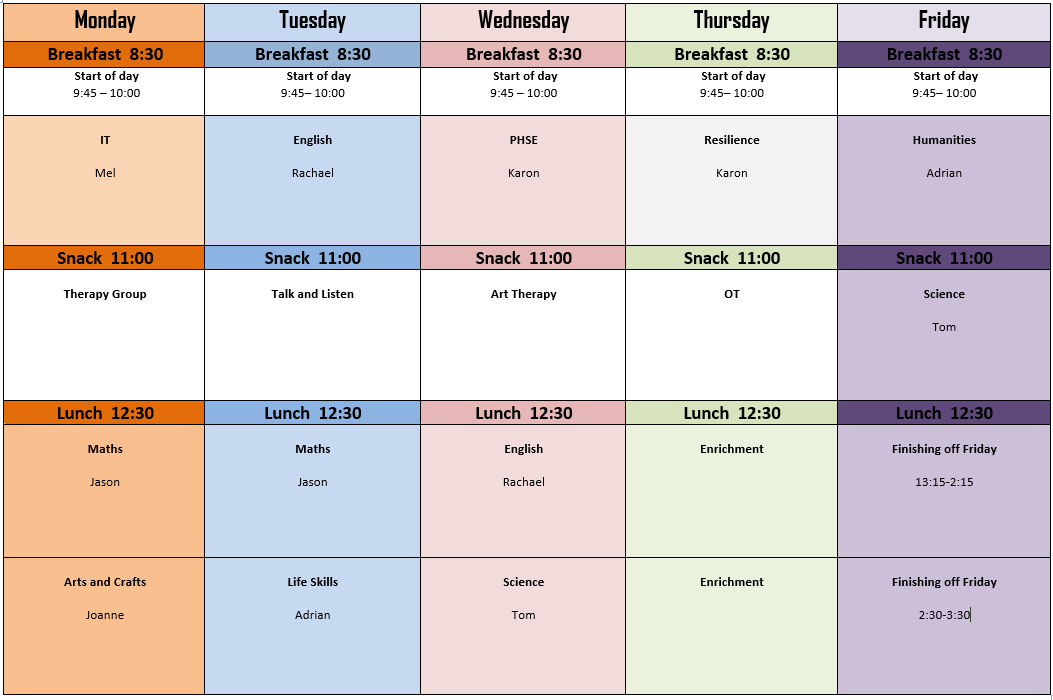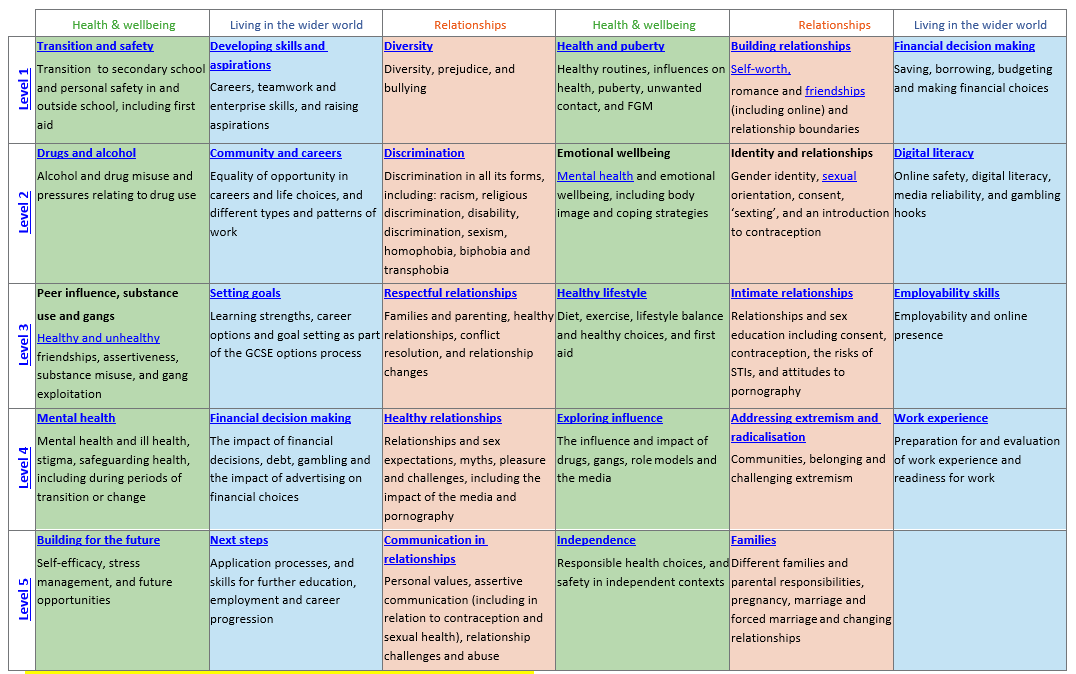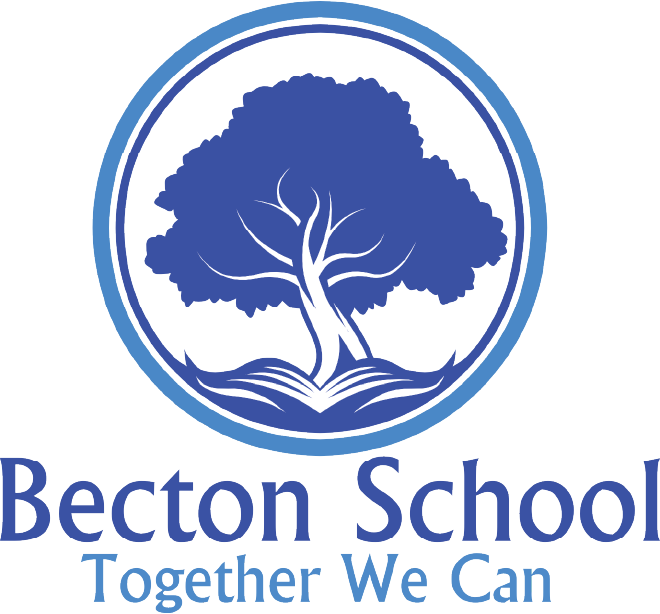Emerald Lodge
Ethos
Becton School will provide relevant teaching in line with the National Curriculum for pupils appropriate to both their emotional and educational situation. The curriculum is delivered by highly experienced and qualified teachers who are supported by a team of Teaching Assistants, Higher Level Teaching Assistants and Learning Mentors; this enables us to offer a high level of support to the young people. Alongside the subject sessions, there are therapeutic sessions such as Occupational Therapy, Art Therapy, Drama Therapy and other group therapies, such as group talking therapies for example.
Upon admission, information will be sought from the young person’s mainstream placement regarding the prior attainment, attendance and targets. Education and Healthcare Plans and Individual Education Plans will be requested where in place. It is essential that all involved parties work in partnership in order to provide the best continuity of education and support for each pupil.
Each young person has a personalised individual learning programme designed in conjunction with them in order to address their academic needs whilst supporting their social and emotional wellbeing.
Educational Needs and Disability
The school is committed to meeting the educational needs of all pupils and children in our care. Therefore, the special educational needs of each individual are taken into consideration in the planning and differentiation of the curriculum, with due regard to existing Education, Health and Care Plans and any subsequent IEPs. If you have any specific issues about your child’s learning, please contact Mr. Jason Golden, SENCO.
For more information regarding the curriculum content of the subject-specific lessons, please see below.
Please note that the content offered to students may differ from the main plan below if specific gaps in learning are identified or if the student's host school has previously covered this material. In these cases, bespoke plans may then be put in place.
Sample Timetable

English
Focus of schemes
The KS3 schemes scaffold students towards these same core skills of identification, comprehension, inference, synthesis and evaluation, as well as creative writing techniques and enjoying the pleasure of language. Use of historical context in analysis is focused on more at KS3.
| Autumn 1 |
Myth and Legend
|
|---|---|
| Autumn 2 |
Celebrations
|
| Spring 1 |
Poetry
|
| Spring 2 |
Gothic Fiction
|
| Summer 1 |
Persuasive Writing (Debate/Speaking & Listening)
|
| Summer 2 |
Film and Narrative
|
Maths
Curriculum Aim
Our approach is to enhance pupils’ enjoyment of Maths and to allow them the opportunity to experience success in the subject. The pupils will follow a carefully sequenced curriculum based on the National Curriculum framework which is appropriate to the pupils’ starting point. Our teachers create a supportive environment where pupils are able to build on knowledge and skills already learnt.
Pupils will join our school at various points in the year, so we structure our curriculum and individual lessons to provide the possibility for progression - and to address any gaps they may have in their learning. Our teachers will encourage pupils to be resilient in their learning, by fostering positive relationships, alongside encouraging pupils to realise that making mistakes is part of the learning process. Pupils will be supported to communicate mathematically and to develop skills to solve familiar and unfamiliar problems.
Delivery of the Curriculum
Pupils will have two maths lessons a week and will be placed in a class based on their age and current working levels. During lessons, they will be working on a particular theme for a number of weeks. These are:
- Theme 1 - Structure of the number system
- Theme 2 - Operating on Number
- Theme 3 - Proportional Reasoning
- Theme 4 - Sequences and Graphs
- Theme 5 - Statistics and Probability
- Theme 6 – Geometry
Lessons will also involve retrieval of previous learning and teachers will address any gaps in knowledge pupils may have. Due to the nature of our pupils, our teachers may be required to offer bespoke lessons based on the learning needs of the group.
If you require more detailed information about what your child is studying in their maths lessons, please contact Katie Cammack, curriculum lead for maths, at kcammack@nexusmat.org
Science
Curriculum Aim
In Science, our aim is to enhance pupils' enjoyment of the Sciences. Our curriculum at KS3 follows the National Curriculum and is taught in an engaging and interactive way, making the learning fun and ensuring that pupils experience success. We structure the lessons so that they are representative of learning in the pupil’s home school and support pupils to gain both the theory and practical skills that they need to succeed in the subject.
Our pupils join us at different points of the year and with different gaps in knowledge. Because of this, we teach core scientific principles essential for future scientific success. Over time, we can then understand a pupil's strengths and gaps in knowledge, and educate them based on their individual needs. Teaching around these core scientific principles allows us to stretch pupils' understanding and increase their cumulative science knowledge. We also engage pupils with practical activities, and it is usually possible for students to pick a science topic to study if they are interested in it.
When appropriate, we are also able to work with a pupil’s home school to mirror the topics they are covering, and prepare students for a smooth transition back to their home school.
Exemplar of Key Principles Taught:
| Term | Content | Practical activities |
|---|---|---|
|
Term 1 |
Understanding cells (Biology) The particle model (Chemistry) Forces (Physics) |
Using microscopes Investigating how water particles behave Using Newton meters |
|
Term 2 |
Elements (Chemistry) Sounds (Physics) Moving and breathing (Biology) |
Simple chemical reactions Making and drawing sounds Creating model lungs and arms |
Social, Moral and Spiritual Education
The school functions within a community that provides a framework for adolescents to explore social, moral and cultural issues. For most of the pupils who attend Becton, life experiences may have rendered them increasingly isolated both at home and at school. It is within this context that the pupils at Becton are given the structure to look at issues pertaining to themselves, their family and friends, and the wider community.
RSE and PHSE
All Becton students are taught using a spiral curriculum approach, which is a curriculum that returns to the same topics over time. All lessons are aligned to the National Curriculum.
The spiral approach to curriculum has three key principles. The three principles are:
- Cyclical: Students should return to the same topic several times throughout their school career;
- Increasing Depth: Each time a student returns to the topic it should be learned at a deeper level and explore more complexity;
- Prior Knowledge: A student’s prior knowledge should be utilised when a topic is returned to so that they build from their foundations rather than starting anew.
The curriculum approach uses 5 levels of skills across 3 different areas:
- Health and Wellbeing
- Living in the Wider World
- Relationships
Staff will benchmark students on entry and will choose a level and subject according to the specific, bespoke needs of the students at that time. The choices will be made with liaison with the wider multidisciplinary team.

Humanities
The modules and content have been developed with reference to the National Curriculum guidance. Topics have been identified to provide some degree of familiarity and to act as a vehicle for the delivery of the overreaching objectives.
Staff will benchmark students on entry and will choose a subject according to the specific, bespoke needs of the students at that time.
| Autumn 1 |
One from:
|
|---|---|
| Autumn 2 |
One from:
|
| Spring 1 |
One from:
|
| Spring 2 |
One from:
|
| Summer 1 |
One from:
|
| Summer 2 |
One from:
|
CEIAG - Careers Education Information advice and Guidance
The Becton School curriculum has a rolling programme that contains elements of the Gatsby Benchmark. This involves session around ‘Enterprise’, progression routes, personal development, career research and presentation skills. In addition all pupils who are at a stage in their education where they may make a transition from school to college or sixth form have an individual session with the school’s personal adviser. This is used to assess the need for further specific individual information, advice and guidance.
If you have any enquiries regarding your child’s access to CEIAG, or require individual additional advice regarding progression routes, please contact Tracey Curtis (Becton School) for further information.
